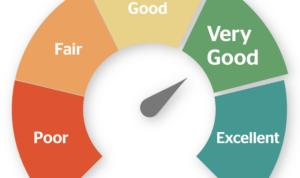Personal Finance for Freelancers immerses you in the world of gig economy finances, where hustling and budgeting go hand in hand. From setting financial goals to managing taxes, this guide has got you covered.
Overview of Personal Finance for Freelancers
As a freelancer, you face unique financial challenges that stem from irregular income, lack of benefits, and the need to manage your own taxes and expenses. It is crucial to effectively manage your personal finances to ensure stability and growth in your career.
Importance of Managing Personal Finances Effectively
Effective personal finance management is essential for freelancers to navigate the ups and downs of irregular income. By budgeting wisely, saving for taxes, and setting financial goals, freelancers can create a solid financial foundation for themselves.
Tips on Setting Financial Goals for Freelancers
- Create a budget that accounts for variable income by setting aside a portion for essentials, savings, and discretionary spending.
- Save a percentage of your income for taxes to avoid being caught off guard at tax time.
- Set short-term and long-term financial goals that align with your freelance income variability, such as saving for emergencies or retirement.
Budgeting Strategies for Freelancers
Budgeting as a freelancer can be challenging due to the irregular income streams. It’s crucial to have a solid budgeting strategy in place to manage finances effectively and plan for the future.
Tracking Expenses and Income
As a freelancer, tracking expenses and income is essential for financial stability. Utilize tools like spreadsheets, budgeting apps, or accounting software to keep detailed records of all transactions. This will help you understand your cash flow and make informed financial decisions.
Zero-Based Budgeting
Zero-based budgeting is a method where every dollar of income is allocated towards expenses, savings, or investments. This approach ensures that every cent is accounted for, helping freelancers prioritize spending and achieve financial goals.
50/30/20 Rule
The 50/30/20 rule is a popular budgeting method where 50% of income goes towards needs, 30% towards wants, and 20% towards savings or debt repayment. Freelancers can adjust these percentages based on their financial goals and lifestyle, providing a framework for balanced budgeting.
Managing Taxes as a Freelancer
When you’re freelancing, managing taxes is crucial to avoid any issues with the IRS. Here’s how you can navigate the tax landscape as a freelancer:
Tax Obligations for Freelancers
Freelancers are considered self-employed individuals, which means they are responsible for paying self-employment taxes. These taxes cover Social Security and Medicare contributions that are typically split between employers and employees in traditional employment settings.
Deductions and Credits for Freelancers
As a freelancer, you have access to various deductions and credits that can help lower your taxable income and optimize your tax savings. Common deductions include expenses related to your business, such as office supplies, equipment, and travel costs. Additionally, you may be eligible for the home office deduction if you have a dedicated workspace in your home.
Organizing Financial Documents, Personal Finance for Freelancers
To stay organized for tax season, it’s essential to keep track of all your income and expenses throughout the year. Consider using accounting software or apps to streamline this process. Make sure to save receipts, invoices, and any other relevant financial documents in case you need to reference them later or provide them to your accountant.
Working with Accountants
While some freelancers choose to handle their taxes on their own, working with an accountant can provide valuable expertise and ensure that you’re taking advantage of all available tax benefits. An accountant can help you navigate complex tax laws, maximize deductions, and file your taxes accurately and on time.
Building an Emergency Fund and Retirement Savings: Personal Finance For Freelancers

Building an Emergency Fund and Retirement Savings is crucial for freelancers to have financial security and peace of mind in the long run.
Importance of Emergency Funds for Freelancers
- Freelancers often have irregular income, making it essential to have an emergency fund to cover unexpected expenses like medical bills or equipment repairs.
- Having an emergency fund can help freelancers navigate through lean months without having to dip into their savings or take on debt.
- It provides a buffer in case of emergencies, ensuring freelancers can continue to meet their financial obligations without stress.
Strategies for Building and Maintaining an Emergency Fund
- Set a realistic savings goal based on your monthly expenses and aim to save at least 3-6 months’ worth of living expenses.
- Automate your savings by setting up automatic transfers from your checking account to a high-yield savings account.
- Cut back on non-essential expenses and redirect those funds towards your emergency fund.
- Consider taking on additional freelance projects or side gigs to boost your emergency fund.
Setting up Retirement Accounts like IRAs or Solo 401(k)s
- Individual Retirement Accounts (IRAs) and Solo 401(k)s are great options for freelancers to save for retirement and reduce their tax liability.
- IRAs offer tax advantages and flexibility in investment choices, making them ideal for freelancers with irregular income.
- Solo 401(k)s allow freelancers to make both employee and employer contributions, maximizing their retirement savings potential.
- Consult with a financial advisor to determine the best retirement account option based on your income, goals, and risk tolerance.
Managing Debt and Credit as a Freelancer

Managing debt and credit as a freelancer can be challenging due to the fluctuating income streams. It’s crucial to have a solid plan in place to tackle debts and maintain a healthy credit score.
Strategies for Managing and Reducing Debt
- Create a detailed budget: Track your expenses and prioritize debt payments within your budget.
- Focus on high-interest debts first: Tackle debts with the highest interest rates to save money in the long run.
- Negotiate with creditors: Reach out to creditors to discuss payment plans or possible debt settlements.
- Avoid taking on new debt: Limit new expenses and focus on paying off existing debts.
Building and Maintaining Good Credit Scores
- Pay bills on time: Timely payments are crucial for a good credit score.
- Keep credit utilization low: Aim to use only a small portion of your available credit to show responsible credit management.
- Monitor your credit report: Regularly check your credit report for errors and fraud that could impact your score.
- Use credit responsibly: Only apply for credit when necessary and avoid maxing out credit cards.
Tips for Using Credit Cards Responsibly
- Pay in full each month: Avoid carrying a balance to prevent high-interest charges.
- Understand rewards and benefits: Utilize credit card perks wisely to maximize benefits.
- Avoid cash advances: Cash advances often come with high fees and interest rates.
- Set a budget for credit card spending: Stick to a predetermined budget to avoid overspending.
Investment Strategies for Freelancers
Investing is a crucial aspect of financial planning for freelancers. It allows you to grow your money over time and build wealth for the future. Here are some investment options suitable for freelancers, along with tips on how to start investing with limited funds.
Overview of Investment Options
- Stock Market: Investing in individual stocks or exchange-traded funds (ETFs) can provide higher returns but also come with higher risks.
- Bonds: Fixed-income securities like bonds offer lower returns but are less risky compared to stocks.
- Mutual Funds: These funds pool money from multiple investors to invest in a diversified portfolio of assets.
- Real Estate: Buying rental properties or real estate investment trusts (REITs) can provide passive income and potential appreciation.
The Importance of Diversification and Risk Management
Diversification involves spreading your investments across different asset classes to reduce risk. By diversifying your portfolio, you can minimize the impact of a single investment performing poorly. Risk management is crucial for freelancers, as they typically have irregular income streams and need to safeguard their financial future.
Diversification is key to mitigating risk in your investment portfolio.
Starting to Invest with Limited Funds
- Robo-Advisors: These automated investment platforms can help you invest in a diversified portfolio with minimal fees.
- Micro-Investing Apps: Apps like Acorns or Stash allow you to invest small amounts of money regularly, making it easy to start investing even with limited funds.
- Employer-Sponsored Retirement Plans: If you have a part-time job or freelance gig that offers a retirement plan, take advantage of it to start investing for your future.









